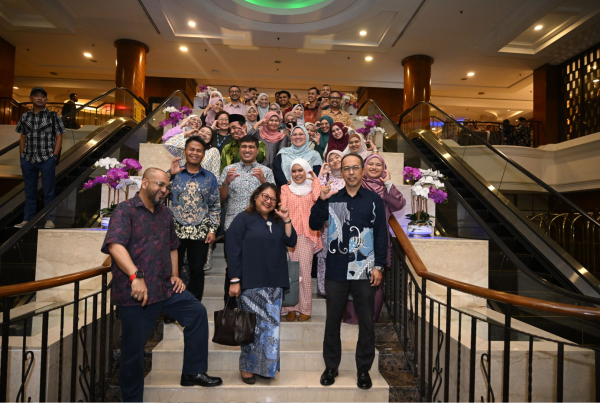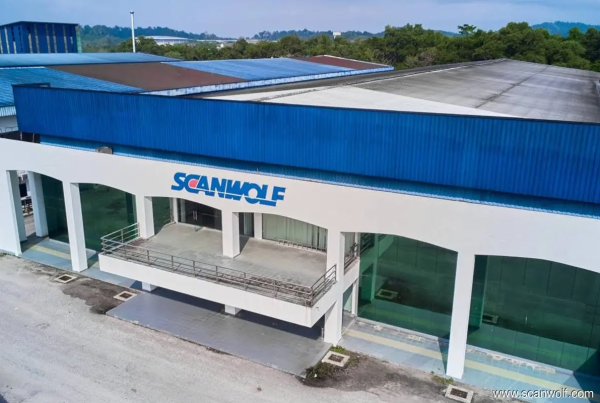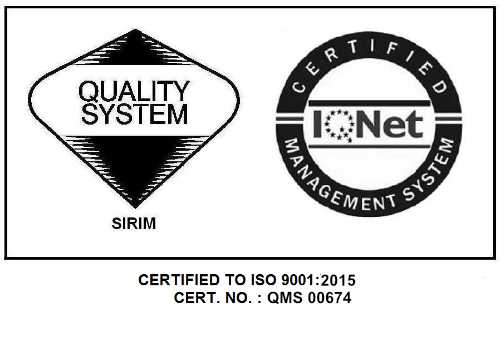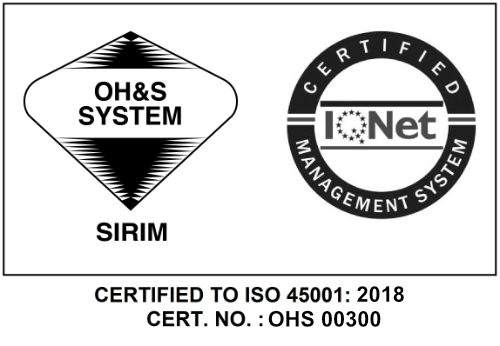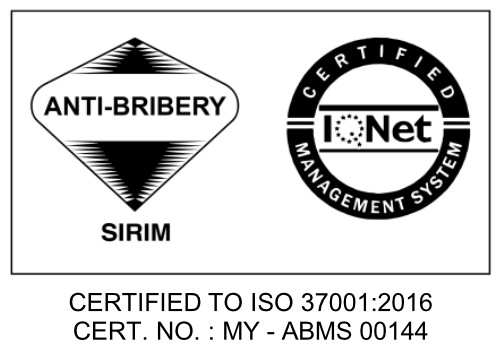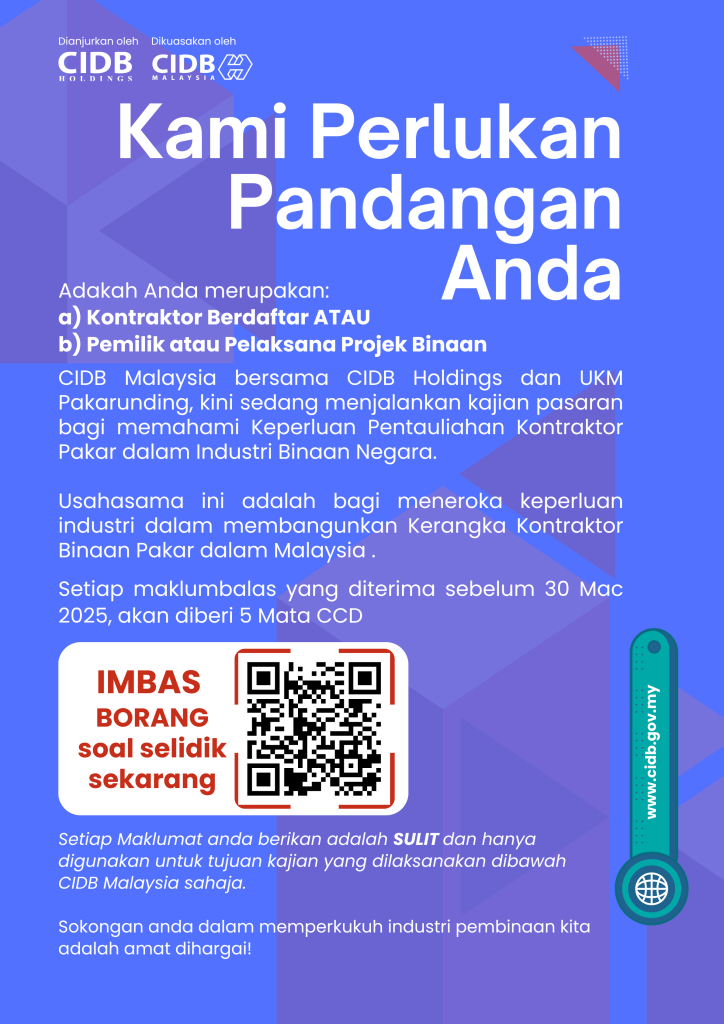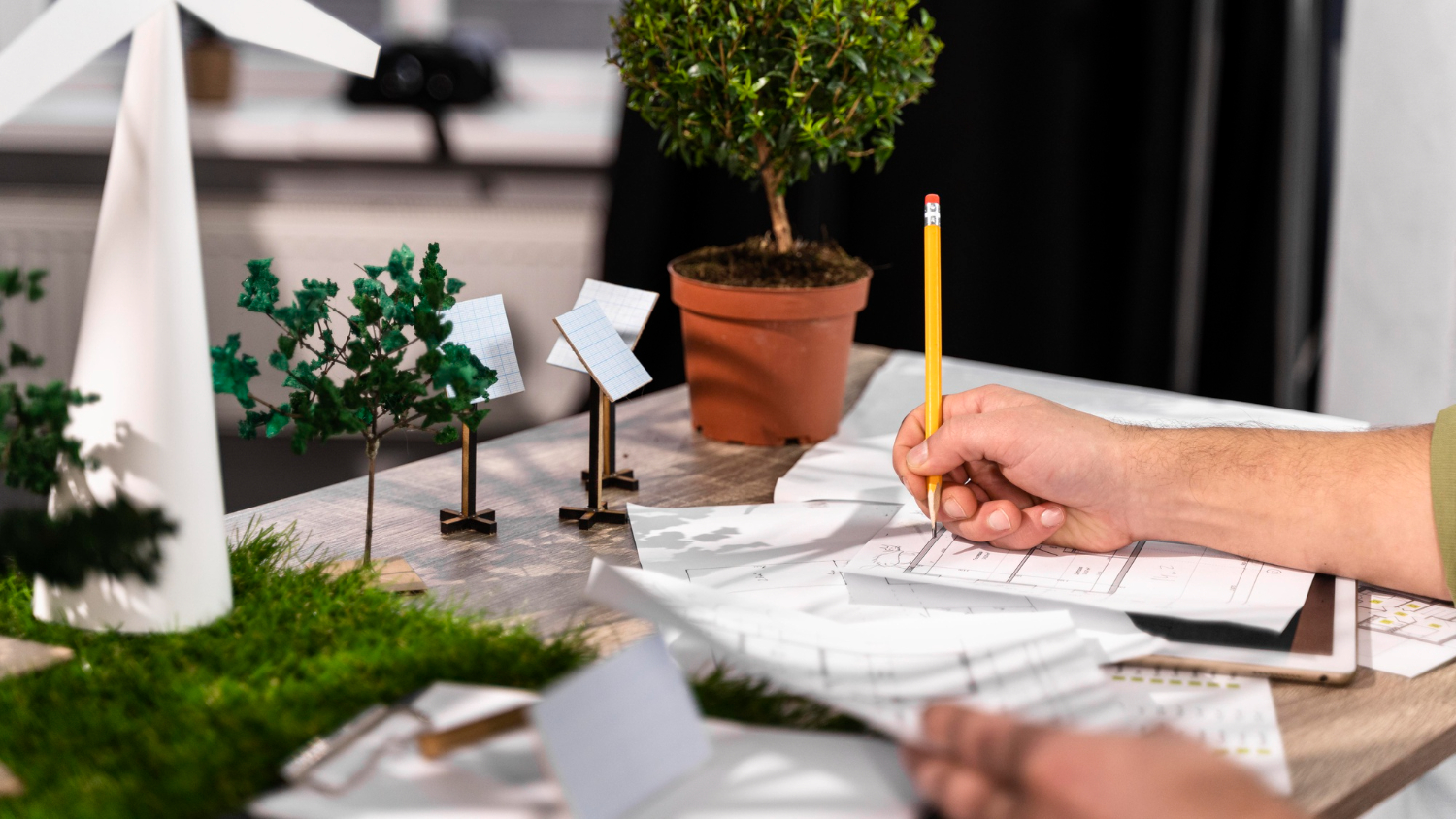
In the pursuit of a resilient and eco-friendly construction landscape, the Construction Industry Development Board (CIDB) is championing the cause of sustainable construction practices.
At the forefront of this movement is the National Construction Policy 2030 (NCP), a visionary framework introduced in 2021 by the Ministry of Works, says Datuk Mohd Zaid Zakaria, CEO of the Construction Industry Development Board Malaysia (CIDB).
The NCP lays down the principles that underscore the importance of sustainable construction, emphasising the creation of high-quality, reliable, and resilient infrastructure that can withstand the challenges posed by natural disasters.
Mohd Zaid said: “NCP has outlined the necessary measures to attain high-quality, dependable, sustainable, and resilient infrastructure. This all is to ensure that projects are designed with infrastructure that can take pressure as well as recover from damages caused by natural disasters.”
During his keynote address at the International Construction Transformation Conference (ICTC) on Nov 14, he stressed that NCP also ensures that the planning, material usage, design, construction processes, and maintenance of the infrastructure are conducted with the thought of constructing as well as preserving structures that can handle natural disasters.
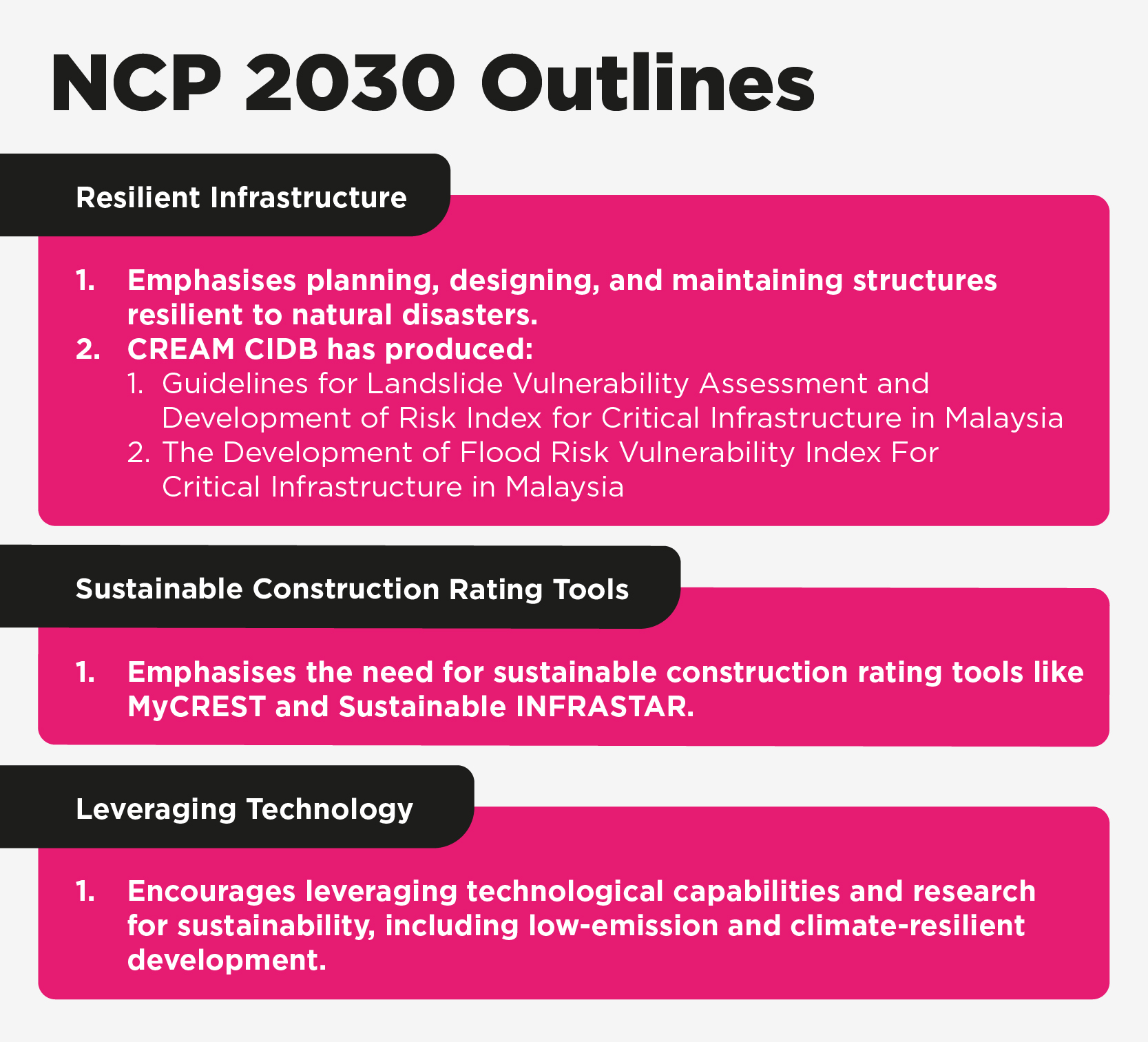
As the construction sector aims for carbon neutrality, it faces challenges related to increased awareness, cost constraints, the creation of market demand, collaboration efforts, skill development, and the establishment of supportive policy frameworks.
Mohd Zaid added that in addressing these obstacles, the government has introduced measures such as the Net Energy Metering and MyHIJAU programmes, coupled with the implementation of the Sustainable and Responsible Investment (SRI) Sukuk Framework.








